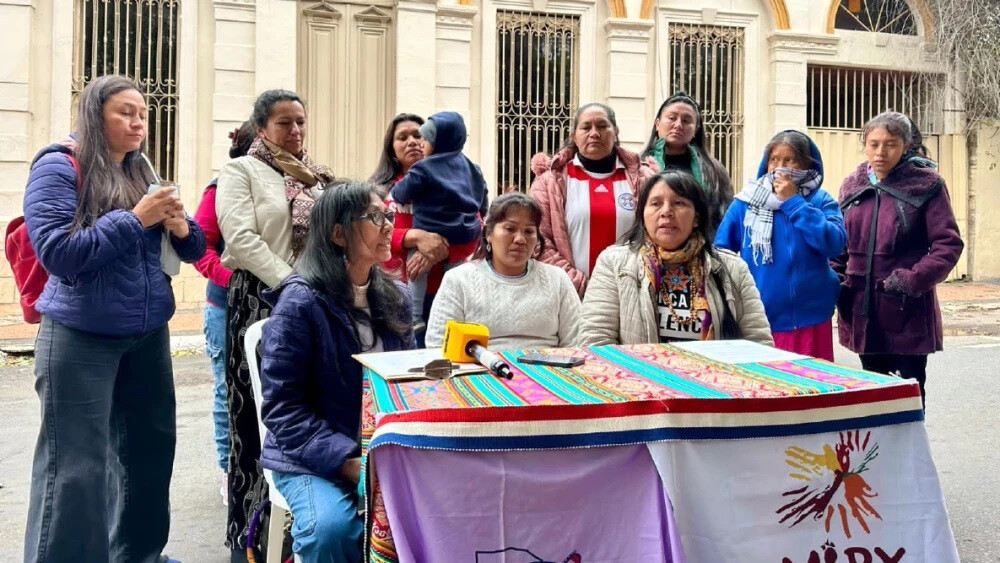
ASUNCIÓN, Paraguay — On September 5, which is International Day of Indigenous Women, the Paraguayan Union of Indigenous Women's Organizations (MIPY), along with Conamuri, Kuña Guaraní Aty, and others, held a protest in front of the National Institute of Indigenous People (INDI) in Asunción. They released a statement calling on the state to provide protection and justice for Indigenous women and girls.
The main point of the statement was a deep concern about the violence faced by Indigenous women and girls. The organizations pointed out that daily acts of violence are increasing and that a significant number of these incidents are ignored without proper action. They criticized the state for “turning a blind eye to violence in Indigenous communities by dismissing it as a 'cultural issue,'” emphasizing that no culture can justify violence against women and girls.
The sexual exploitation of Indigenous girls and adolescents in border regions was highlighted as a particularly serious problem. The organizations expressed great concern over the growing number of disappearances due to organized crime and the continued indifference of authorities. They criticized the government for its dysfunctional national prevention and punishment systems and demanded immediate action.
They also insisted that the INDI headquarters should remain in Asunción to better reflect the voices of Indigenous communities. They opposed the government's plan to relocate the INDI headquarters to a rural area, stressing that the rights of Indigenous people can only be properly protected if their participation is guaranteed in the capital. They announced their commitment to continue the struggle to preserve their cultural identity and be recognized as equal members of Paraguayan society.
The protest served to raise awareness about the complex issues faced by Indigenous women, including sexual violence, exploitation, and social exclusion. Their message is being received not just as a simple protest, but as an urgent plea to address the deep-rooted structural inequality in Paraguayan society.
[Copyright (c) Global Economic Times. All Rights Reserved.]






























